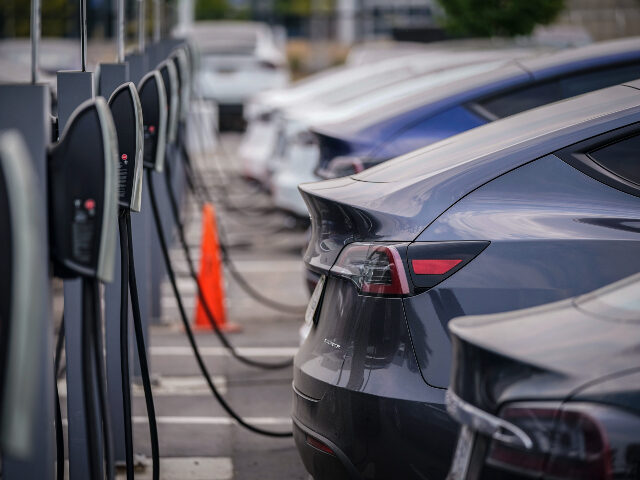A recent study from the University of Michigan has shed light on a critical challenge facing the global transition to electric vehicles: the inability of copper mining to keep pace with the growing demand.
Engineering & Technology reports that copper, a crucial component in electricity generation, distribution, and storage, is fundamental to the successful implementation of policies aimed at promoting the adoption of EVs. However, a recent study from the University of Michigan, titled “Copper mining and vehicle electrification,” has revealed that the current rate of copper production is insufficient to meet the projected demand for the metal in the coming years.

Workers of the Next Mineral mining company inspect the Comahue copper mine in Antofagasta, Chile, on March 1, 2021. (Photo by Glenn ARCOS / AFP) (Photo by GLENN ARCOS/AFP via Getty Images)
According to GlobalData, there are over 709 operational copper mines worldwide, with the Escondida mine in Chile being the largest, producing an estimated 882,100 tons of copper in 2023. Despite this seemingly huge output, the rapid pace of electrification globally is outstripping the mining industry’s ability to keep up. In fact, the authors state that, “We show in the paper that the amount of copper needed is essentially impossible for mining companies to produce.”
The Michigan study highlights the fact that an EV requires three to five times more copper than traditional gas or diesel cars, not to mention the additional copper needed for upgrades to the electricity grid. As Professor Adam Simon from the University of Michigan points out, “A normal Honda Accord needs about 40 pounds of copper. The same battery electric Honda Accord needs almost 200 pounds of copper.”
The researchers analyzed 120 years of global data on copper production, dating back to 1900, and modeled the likely copper production for the remainder of the century. They compared this with the projected copper requirements for the US electricity infrastructure and vehicle fleet to transition to renewable energy. The study concluded that renewable energy’s copper needs would exceed the current production capacity of copper mines.
Between now and 2050, the world will need to mine 115 percent more copper than has been mined in all of human history up until 2018, just to meet current copper needs without considering the green energy transition. To meet the copper demands of electrifying the global vehicle fleet, as many as six new large copper mines must be brought online annually over the next several decades, with about 40 percent of the production from these new mines being required for EV-related grid upgrades.
The study suggests that instead of fully electrifying the entire US fleet of vehicles, focusing on manufacturing hybrid vehicles might be a more feasible approach. Professor Simon notes, “We know, for example, that a Toyota Prius actually has a slightly better impact on climate than a Tesla. Instead of producing 20 million EVs in the US and, globally, 100 million battery EVs each year, would it be more feasible to focus on building 20 million hybrid vehicles?”
Read more at Engineering & Technology here.
Lucas Nolan is a reporter for Breitbart News covering issues of free speech and online censorship.

COMMENTS
Please let us know if you're having issues with commenting.